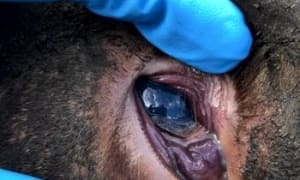MARKETING produce directly is a winner for Ramarro Farm owner, Oliver Shorthouse, whose exotic vegetables are filling the voracious appetites of upmarket restaurant goers.
Perched atop the Dandenong Ranges, an hour east of Melbourne, this former chef has turned his hand to growing vegies, and has never looked back.
The daily grind, coupled with long hours of heat in the kitchen, drove Oliver to The Patch, with a few acres of land, and a hobby farm for himself and partner, Lisa Davis.
They began with a few varieties, giving most away to willing family and friends.
Three years ago, they bit the bullet and went commercial, establishing Ramarro Farm, mitigating the risk through an abundance of natural features such as red volcanic and mountain soils, served by a healthy rainfall of 1200mm each year, and a viable business plan.
Latest Stories
Oliver's cheffing skills would not be lost in the detail either, nor would a ready–made market of friends in the industry challenge their bold plan.
Twenty years of experience in front–of–house, and as restaurant manager along with refining operating systems, has also provided a segue into his farming operation.
After graduating from university and majoring in Italian and sociology, he lived in Italy for three years; bringing back a host of ideas, enough to grow a diverse range of classy vegies.
"Restaurants were eager to try new product for their shape, colour, uniqueness and culinary background, for example, Italian, French and Vietnamese," Oliver said.
"We started out small and kept growing.
"More recently we started a new venture by importing 'radicchio', a chicory–like veg, grown regionally in Italy.
"We have four and a half acres of fertile land and grow 120 types of fresh–to–market vegetables, all year round, which customers appreciate."
The Ramarro brand can be seen at swish establishments like Cutler & Co, Grossi Florentino, Society, Stokehouse, MoVida and a myriad of others, including Sydney restaurants.
Oliver says he loves working with chefs and believes the dialogue between chef and farmer makes both their products better.
Everything Ramarro produces is au natural, even the salad mix is washed by rainwater and dried naturally, without chemicals.
"We are an organic farm although we are not certified," Oliver said.
"Our customers don't ask us to certify – we have lots of bugs and weeds, and it's a very alive farm.
"We grow veg like you would in your own backyard.
"But the time to market is so short, within one day of the supply chain.
"It's our reason for being.
"It tastes so good."
Polytunnels are used year round to control heat, moisture and minimise pests and disease.
Staff numbers have increased to 12 and training is a continuum.
Ramarro's field manager is an 'ex–agronomist', who had been disillusioned by the system, but has brought 'good nutrition' to their farm.
She manages the control of pests and disease, a luxury to many farmers.
They work a five–day week and no more than eight hours a day.
"You can't burn people out," Oliver said.
"The restaurant business model is broken, and wage theft, another result of over work.
"Your vision is your north star and you have to be comfortable with your lifestyle, but within this planning is essential, otherwise there are unintended consequences.
"We just have a vegie patch, and sometimes you hit a sweet spot; for lifestyle and profitability; so, we live the good life.
"In my view, the bigger you are, the more complicated life is."
The Shorthouses have also planted fruit trees for family use, and 150 olive trees.
While six–year–old son Leo is resisting 'all coercion to go outside', the day might come when he too can walk in his parents' footsteps.
Meanwhile his mum, Lisa, quietly goes about the business, while notching up another novel or two in her quest to become a celebrated writer; as Oliver is seen munching on a cucamelon, after a day's work.













